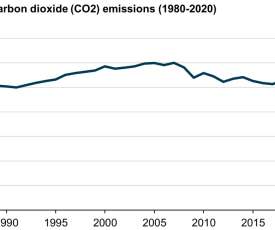BNEF: Oil price plunge to have only moderate impact on low-carbon electricity development, but likely to slow EV growth
Green Car Congress
DECEMBER 22, 2014
The collapse in world oil prices in the second half of 2014 will have only a moderate impact on the fast-developing low-carbon transition in the world electricity system, according to research firm Bloomberg New Energy Finance. However, the slump in the Brent crude price per barrel from $112.36 on 30 June to $61.60



































Let's personalize your content